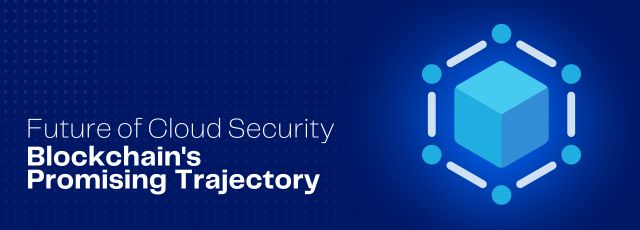In an era characterized by digital advancements, ensuring the security of data stored in the cloud has become a paramount concern for individuals and organizations alike. Cloud security encompasses a set of measures and protocols crafted to safeguard data, applications, and infrastructure hosted in cloud environments. The escalating migration of data to the cloud underscores the crucial significance of robust security measures.
In this dynamic landscape, cyber threats continually evolve, emphasizing the critical need for advanced security solutions to protect sensitive information. To address the challenges associated with traditional security approaches, the emergence of blockchain technology has introduced a new dimension. Originally developed as the foundational technology for cryptocurrencies, blockchain serves as a decentralized and tamper-proof ledger with promising applications extending beyond its initial scope. Visit https://bitcoinxapp.com/ for further insights.
Evolution of Cloud Security
➤ Traditional Approaches and Limitations
Traditional approaches to cloud security relied heavily on centralized control mechanisms. However, these methods often fell short in providing comprehensive protection, leaving vulnerabilities exposed and susceptible to exploitation.
➤ Rise of Cloud Computing
The evolution of cloud computing marked a paradigm shift in how data is stored and accessed. While offering unparalleled convenience, it brought forth a new set of challenges, particularly in terms of securing data across vast and interconnected cloud networks.
➤ Challenges Faced in Ensuring Cloud Security
As cloud environments expanded, challenges such as data breaches, unauthorized access, and the risk of single points of failure became more prominent. Traditional security measures struggled to keep pace with the dynamic and complex nature of cloud infrastructures.
Understanding Blockchain Technology
➤ Definition and Basics of Blockchain
Blockchain, at its core, is a decentralized and distributed ledger that records transactions across a network of computers. The information is stored in blocks, and each block is linked to the previous one, creating a chain of blocks that is secure and resistant to tampering.
➤ Decentralization and Its Role in Security
Decentralization, a key feature of blockchain, eliminates the need for a central authority. This not only enhances security by reducing the risk of a single point of failure but also ensures transparency and trust among network participants.
➤ Smart Contracts and Automation
Smart contracts, self-executing contracts with the terms of the agreement directly written into code, add another layer of security. These automated contracts enhance efficiency, reduce the risk of human error, and facilitate trust among parties involved.
Synergies Between Blockchain and Cloud Security
➤ Immutable Ledgers and Data Integrity
One of the primary advantages of blockchain is its ability to create an immutable ledger. This ensures that once data is recorded, it cannot be altered, providing a high level of integrity and traceability.
➤ Decentralized Identity Management
Blockchain’s decentralized nature enables more secure identity management. Users have control over their identities, reducing the risk of identity theft and unauthorized access.
➤ Enhancing Confidentiality through Encryption
Blockchain’s integration with advanced encryption techniques enhances the confidentiality of data stored in the cloud. By encrypting data at various stages, from storage to transmission, the risk of unauthorized access is significantly reduced.
Blockchain-Based Security Protocols
➤ Consensus Mechanisms and Distributed Trust
Consensus mechanisms such as Proof of Work (PoW) and Proof of Stake (PoS) contribute to distributed trust within blockchain networks. These mechanisms ensure agreement among participants and protect against malicious activities.
➤ Zero-Knowledge Proofs for Enhanced Privacy
Zero-knowledge proofs enable one party to demonstrate knowledge of specific information without disclosing the information itself. This strengthens privacy and confidentiality, establishing it as a valuable method in securing sensitive data.
➤ Decentralized Key Management Systems
Blockchain facilitates the development of decentralized key management systems, reducing reliance on central authorities for key management. This adds an extra layer of security to cryptographic keys.
Real-world Applications and Implementations
➤ Integration of Blockchain in Cloud Security Solutions
Numerous companies are actively exploring the integration of blockchain into their cloud security solutions. This approach offers a more resilient and secure infrastructure, minimizing vulnerabilities.
➤ Use Cases in Public and Private Cloud Environments
Blockchain’s application in both public and private cloud environments showcases its versatility. Use cases range from securing financial transactions to ensuring the integrity of sensitive healthcare data.
➤ Industry Adoption and Success Stories
Various industries, including healthcare, finance, and supply chain, are witnessing the successful integration of blockchain into their cloud security frameworks. These success stories underscore the potential for widespread adoption.
Challenges and Future Considerations
➤ Scalability Issues and Solutions
While blockchain offers robust security, scalability remains a challenge. Ongoing research and development aim to address scalability issues, ensuring that blockchain can handle the increasing demands of cloud environments.
➤ Regulatory Frameworks and Compliance
The intersection of blockchain and cloud security introduces new regulatory considerations. Establishing frameworks and ensuring compliance with existing regulations are crucial steps in the widespread adoption of these technologies.
➤ Future Trends and Research Directions
The future of blockchain in cloud security holds exciting possibilities. Ongoing research is exploring advanced solutions, and emerging trends point towards further advancements in areas such as quantum-resistant cryptography and enhanced interoperability.
Conclusion
In conclusion, the integration of blockchain technology into cloud security presents a significant opportunity to forge a more robust and trustworthy digital environment. The potential impacts on businesses and individuals are substantial, offering improved security measures, diminished risks, and heightened transparency through the amalgamation of blockchain and cloud security. As the trajectory of cloud security advances, there is a compelling call to action for organizations to delve into and embrace blockchain-based solutions. Collaborative efforts and continued research are pivotal in paving the way for a more secure and resilient digital future.
